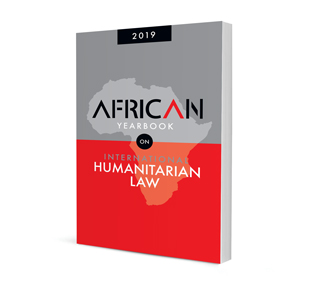
Les accords spéciaux dans les conflits armés en République Démocratique du Congo: Contribution à l’amélioration du droit international humanitaire?
Authors: Par Junior Mumbala Abelungu
ISSN: 2521-2621
Affiliations: Docteur en droit (PhD) de l’Université de Gand (Belgique), Master de spécialisation en droit international de l’Université Libre de Bruxelles (Belgique)
Source: African Yearbook on International Humanitarian Law, 2019, p. 49 – 80
Abstract
Special Agreements in Armed Conflicts of the Democratic Republic of the Congo: A contribution to the Enhancement of International Humanitarian Law? The Democratic Republic of the Congo (DRC) has been facing an interlocking and almost permanent armed conflict for more than two decades. Under the auspices of the international community, several special agreements have been signed between the parties — state and nonstate — involved in the conflicts. It is worth considering the relevance of those agreements as a means to enhance compliance with international humanitarian law (IHL). Indeed, it appears that these special agreements are mostly preoccupied with eminently political issues, including the peaceful settlement of disputes and security and institutional reforms. Few special agreements concluded in this framework are specifically concerned with IHL, particularly in terms of managing hostilities. They concern, rather, putting an end to hostilities while resolving the fate of civilians and combatants. Thus, they often imprecisely reaffirm respect for IHL. Even then, there is no real evidence that the parties to armed conflicts in the DRC are committed to ensuring compliance with IHL through these agreements. Their systematic violations confirm this point of view. Also, the pressure exerted by the international community pushes sometimes conflicting parties to sign these agreements without conviction. The advantage of these agreements, however, is that they allow armed groups, in particular, to expressly and unambiguously reiterate their commitment to the rules of IHL. This reinforces, at the same time, IHL instruments in sub-regional or national frameworks.